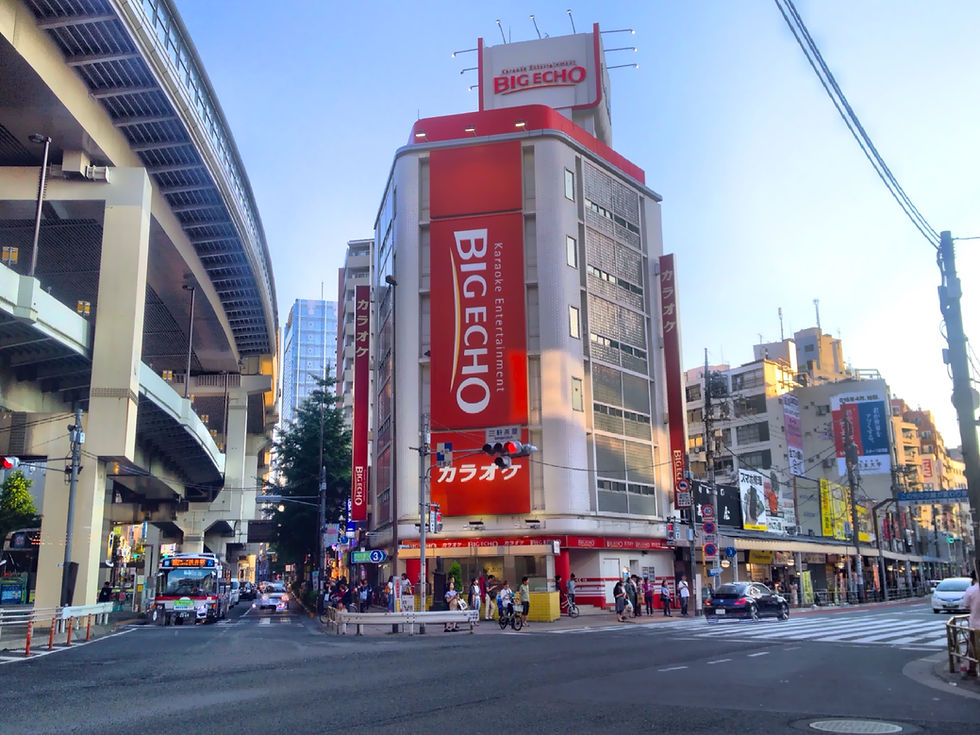Foreign investment fuels ¥200 billion development in Myoko Kogen raising cautious optimism for regional redevelopment
- Adam German

- Mar 12, 2025
- 3 min read
Updated: Jun 2, 2025
Myoko Kogen, one of Niigata’s premier tourist destinations, is undergoing a large-scale redevelopment spearheaded by a foreign investment firm, with total costs estimated at up to ¥200 billion.
While the project is expected to revitalize the local economy, the optimism is infused with caution over potential land price inflation and rising living costs, reminiscent of the real estate boom seen in Niseko, Hokkaido.
Surge in Visitors and Foreign Investment
In February, the peak of ski season, Myoko Suginohara Ski Resort was bustling with visitors. A tourist from Kanagawa praised the powder snow, while a visitor from New Zealand remarked, "The snow quality is incredible, and the prices—lift tickets, beer—are far cheaper than overseas."
The ski resort was acquired in November 2023 by Singapore-based Patience Capital Group, which has since entrusted operations to Seibu Holdings. The firm is now executing an ambitious plan to develop Myoko Kogen into a year-round resort, not just a winter sports destination.
Patience Realty is a proud group company of both Patience Capital Group & Capital Brain.
“We aim to create a resort that attracts visitors in all seasons—skiing in winter, hiking in summer, and enjoying autumn foliage,” said Ken Chan, CEO of Patience Capital Group. “This area has stunning nature, exceptional snow, great food, and hot springs—something truly unique in the world.”
In addition to Myoko Kogen, Patience Capital Group is developing resorts in Madarao Kogen and around Lake Nojiri, straddling Niigata and Nagano prefectures.
Related Content: Myoko? Hakuba? Nozawa? Karuizawa? Choose them all. Announcing Brillia Nagano Kita-Ishido ALPHA RESIDENCIA pre-sales. Largest new condo complex in Nagano City since 1973. Click here to learn more and register interest to receive latest info.
The 10-year project is slated to see up to ¥200 billion in investment, with a luxury hotel slated to open near Suginohara Ski Resort within four years. The development primarily targets affluent domestic and international visitors.
Local Businesses Adapt to Growing Foreign Presence
At a convenience store near Akakura Onsen, located about 10 minutes from Suginohara, foreign tourists lined up in the afternoon to buy meals—an increasingly common sight. Myoko Kogen saw a record 125,600 foreign visitors in 2023, recovering from a pandemic-related slump.
Brendon Ellis, an Australian entrepreneur, opened Red Fox Lodge at the base of Suginohara three years ago, drawn by lower land prices compared to Niseko and Hakuba. “I see this development as positive,” he said. “It will benefit the local economy and bring more visitors beyond winter.”
Established guesthouses are also seeing shifts. Atsushi Takeda, owner of Highland Lodge Takegen, a family-run inn in Suginohara for 62 years, noted a rise in direct booking inquiries from foreign tourists. He welcomed the development, saying, “More international visitors would be a boost for tourism.”
Myoko Kogen promotional video courtesy of Mountainwatch Travel YouTube channel.
The Myoko Kogen ski area once attracted 3 million visitors annually during Japan’s late 1980s economic bubble, but by 2023, that number had declined to 540,000. The number of family-run lodges in Suginohara also dropped from 100 to 30.
Recently, however, abandoned inns are being repurposed as foreign-owned restaurants and lodging businesses catering to inbound tourists.
While this shift brings economic activity, some locals worry about rising land prices. “More people moving in is good for the town, but if land values skyrocket, it could make living here difficult for residents,” said Takeda.
Concerns Over a Niseko-Style Boom
For some, the situation evokes comparisons to Niseko, where an influx of foreign investment drove land prices up 15-fold, making housing and even daily expenses unaffordable for long-time residents. In Myoko, the effects are already visible: land prices in Sekikawa, near the development site, rose 9%—the highest increase in Niigata Prefecture.
Niigata Prefecture officials attributed the rise to heightened expectations surrounding the large-scale investment. Myoko Mayor Yoji Kido called the project a “once-in-a-lifetime opportunity” but acknowledged concerns. “If land prices rise moderately, it can create business opportunities. However, we must ensure development follows regulations,” he said.
To prevent excessive development, Myoko City plans to establish a collaborative framework between investors and local stakeholders.
Patience Capital Group’s Chan emphasized that lessons from Niseko and Hakuba would guide their approach. “We’ve seen what happened in those areas and will make adjustments accordingly,” he said.
While acknowledging the likelihood of rising land prices, he argued that the overall economic benefits—such as increased hotel occupancy—would outweigh the negatives.
“If rural areas don’t attract investment, they will continue to decline as young people move to major cities,” Chan noted. “Our goal is to involve the local community in this revitalization effort.”
Source:
TBS News Dig (Japanese only)



